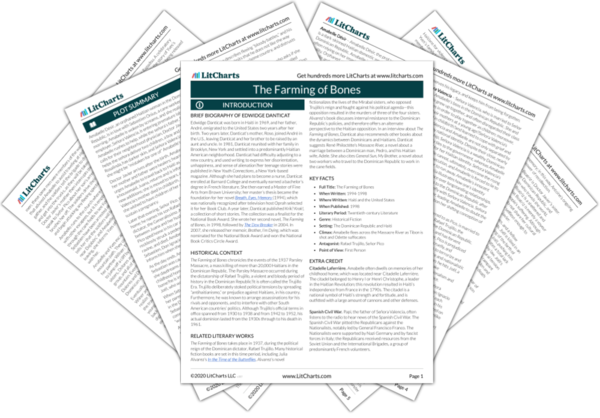Once Amabelle enters the river, she begins to fixate on death. She clearly associates the river, the site of her parents’ drowning, with the idea of mortality. The corpse that floats in the water only reinforces this association. Amabelle, who has witnessed others’ deaths and experienced deep grief, wishes to respect the dead and honor their passing, even as she’s filled with gratitude that Sebastien is not the one who died. In this way, Amabelle’s behavior here shows again that death has a profound and lasting impact on those who have seen it.
